29 interesting facts about the human body that will make you exclaim 'how amazing'
Our body is a perfect machine, performing thousands of operations every minute. And do you believe that, right at the moment you are reading this article, countless strange things are happening in your body without you even knowing?
Check out these 29 interesting facts about the human body that will make you exclaim "so amazing" , we guarantee you will be extremely surprised!
Your tongue may be getting fat.
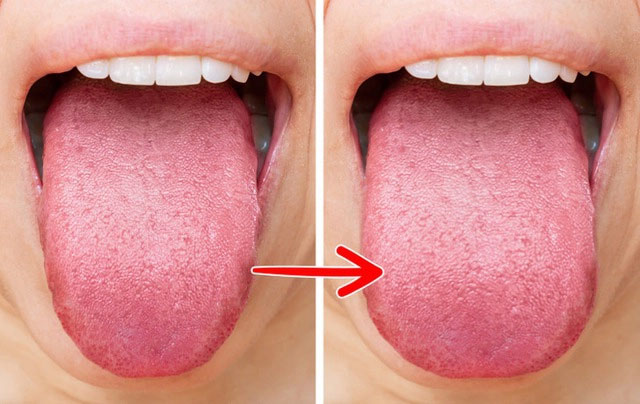
When we gain weight, not only do our waists and bellies get bigger, but our tongues also get fatter. In some cases, an oversized tongue can even cause people to have sleep apnea. The good news is that when you lose body fat, your tongue can also get slimmer.
Stomach acid is very strong
Stomach acid is so strong that without a special protective lining it can burn a hole in the body.
However, sometimes we have a burning sensation due to acid reflux or heartburn, even stomach ulcers.
The longer your fingers, the more testosterone you have
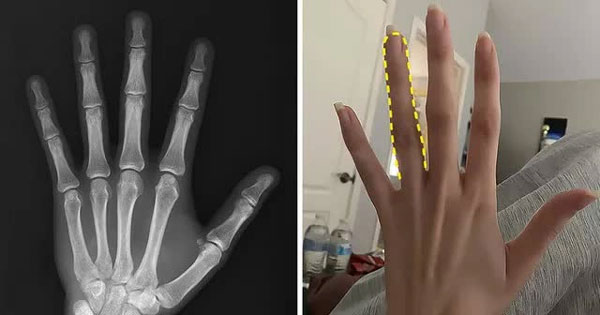
The ratio of the length of your ring finger to your index finger is directly related to the amount of testosterone in your body. If your ring finger is longer than your index finger, you have high levels of testosterone and are likely to be healthier.
We secrete 1-2 liters of saliva every day.
Due to various factors, we have certain times when we secrete more saliva than usual, but most people secrete approximately the same amount of saliva every day.
The human brain shrinks as we age
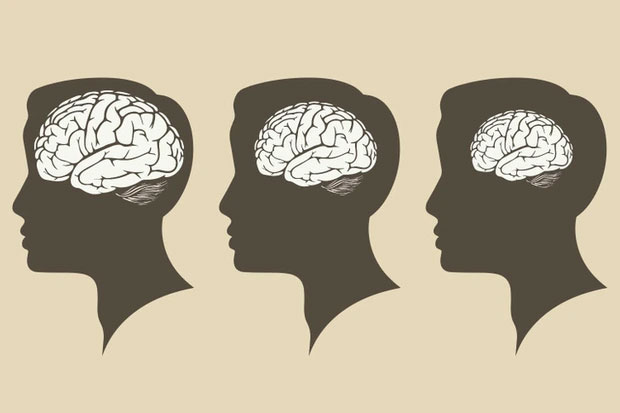
In your 30s or 40s, your brain starts to shrink. And when you reach 60, the rate of shrinkage accelerates, with some parts of your memory declining faster than others. Aging is inevitable, but you can help keep your mind healthy by eating and exercising properly, and by getting regular checkups to prevent diseases early.
When dreaming, people will not see anything.
According to research by Rachel Herz, a professor of psychiatry at Brown University, during the REM (rapid eye movement) stage of sleep, when dreams occur, people cannot detect anything because they cannot use their sense of smell to connect with the real world. According to Rachel Herz, the scents we experience in dreams are created in the brain and do not originate from the outside world.
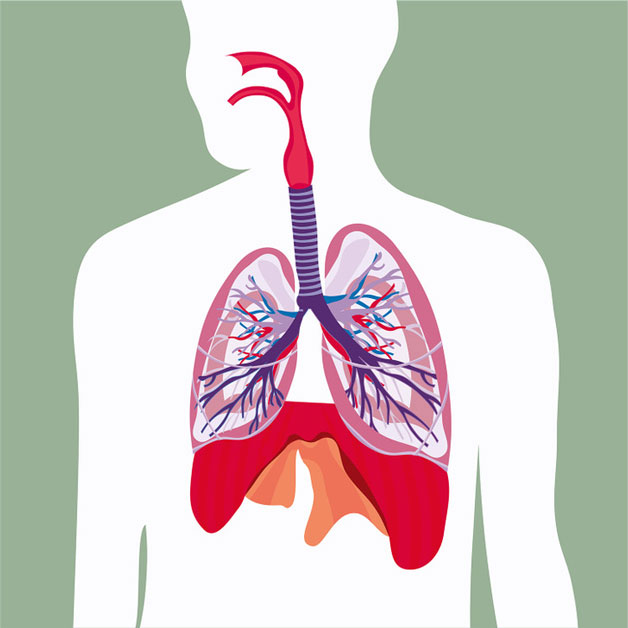
Your left and right lungs are different
The human lung is divided into a left and right lung, with more than 300 million air sacs or alveoli and more than 1,500 miles of airways. The left lung is slightly smaller to make room for the heart and is divided into 2 lobes, while the right lung is divided into 3.
The eye is the fastest muscle in the body.
In the human body, the eye muscles are the strongest and fastest. The eyes can move quickly in all directions and can stimulate other muscles to move. For example, when the eyes see a dangerous object flying towards the body, it will stimulate the arm muscles to raise to stop it.
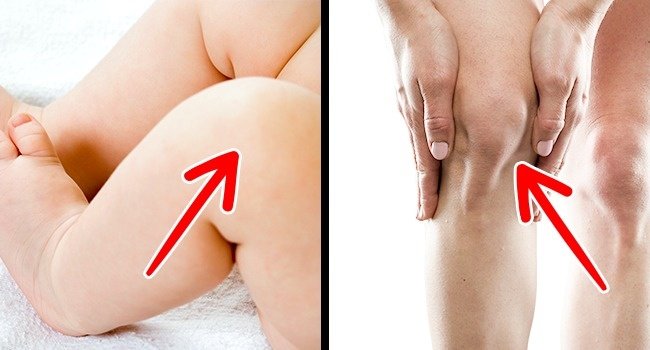 © depositphotos.com
© depositphotos.com
Baby born without knees
Babies do not have knees until they are about 3 years old. In the early stages, this part only consists of soft cartilage tissue. These cartilage pieces will ossify into bone when the child is 3 years old. According to scientists, the benefit of having a lot of this cartilage when the child is still very young helps the child to have better flexibility. In addition, when learning to walk, children often fall, not having knees will help the child feel less pain when hitting the floor. Because the soft cartilage has greatly reduced the impact force.
The cornea is the only part of the body that does not bleed even if injured.
This is because the cornea is the thin, transparent membrane that sits on the outermost layer of the eyeball, in front of the iris. It does not receive oxygen from the blood but directly from the air, but instead receives nutrients from the tear ducts in front and the aqueous humor in the back.
You can't laugh if you tickle yourself.
The cerebellum sends signals to ignore stimulation of other parts of the brain when you do so.
The human brain uses 20% of the oxygen and 50% of the glucose that enters the body.
The amount of oxygen and glucose used by the brain accounts for 20% of the body's total energy. By the way, the popular theory that we only use 10% of our brain is a myth. In fact, we use all parts of our brain and they are always active.
Glare when exposed to light is quite common.
This is because our eyes cannot see bright, dazzling lights directly. These are normal reactions to light but can also be caused by abnormal or pathological phenomena.
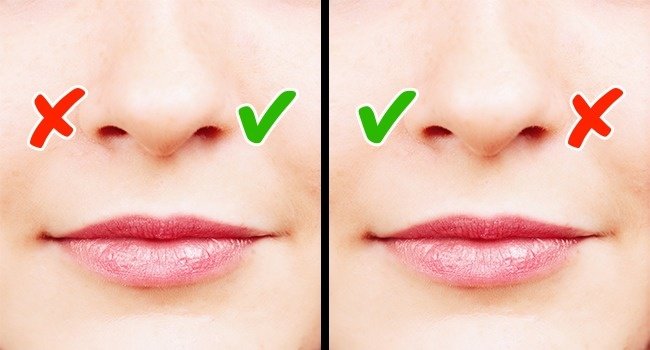 © depositphotos.com
© depositphotos.com
We do not breathe through both nostrils.
We do not breathe through both nostrils at the same time, but only breathe through one nostril at a time. To be more precise, scientists have shown that every 4 hours, people change their nostrils to breathe ( from right to left, from left to right ). If you are breathing through the left nostril, your blood sugar level will increase and force your body to use more oxygen. Breathing through the right nostril will stimulate increased activity in the left brain and vice versa.
25% of our muscles are concentrated in the neck and face area.
The facial muscles control facial expressions. They originate from the surface of the skull, under the skin of the face. When the muscles contract, the skin moves. The large number of facial and neck muscles gives our facial expressions a rich and flexible range.
Redhead woman hair
The hair of red-haired women was used to create hygrometers ( devices that measure air humidity ).
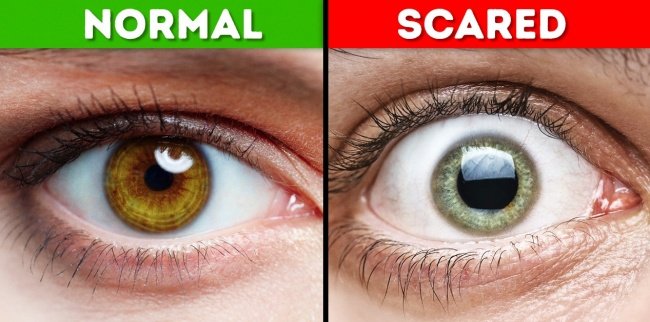 © depositphotos.com
© depositphotos.com
When you are too scared, your eyes will seem " round ".
According to experts, at this time, the brain will direct the visual part to increase " coverage ", thereby estimating the surrounding environment better.
Our brains can provide enough energy to light a light bulb.
Although many people believe that color blindness is a gender-linked condition that affects only men, the condition actually affects 0.4% of women and 8% of men. However, the gene for color blindness is only passed down from mothers.
The human body needs to use more than 200 muscles to take one step.
The human body needs to use more than 200 muscles. This number may vary depending on the characteristics of each individual.
Human skin regenerates every 28 days
In a lifetime, each person usually " removes " about 40kg of skin.
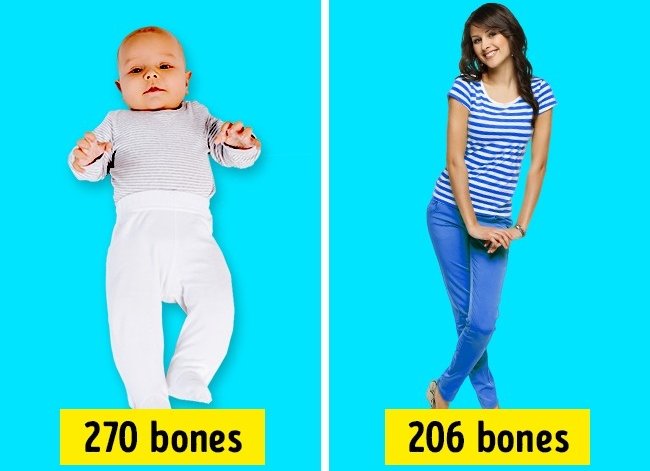 © depositphotos.com
© depositphotos.com
The number of bones in an adult is less than that of a newborn baby.
A baby is born with 270 bones. But as they grow, some bones fuse together, so by adulthood, there are only about 206 bones left.
The life cycle of a human hair is from 2 to 5 years.
However, some can live up to 7 years.
Women's hearts beat faster than men's hearts
The heart of an adult woman weighs about 120g, smaller than that of a man by about 180g. So to compensate for the size problem, women's hearts beat faster, on average, about 70-85 times per minute, while men's beats from 78-82 times.
In one year, the human heart can pump enough blood to fill an Olympic swimming pool ( more than 2.5 million liters ) and perform 38.5 million contractions.
The liver is a superhuman organ .
The liver is one of the few organs in the body that can regenerate to its original size, even 75% of its tissue, after loss .
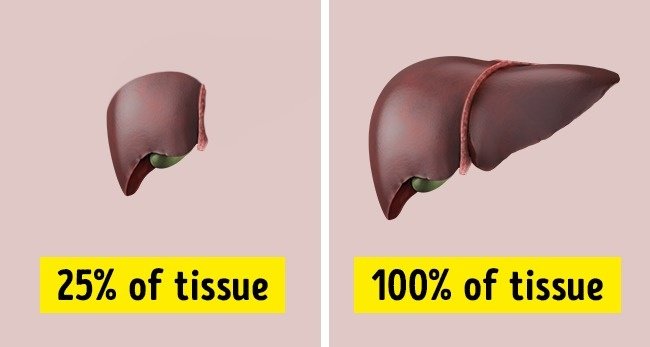 © depositphotos.com
© depositphotos.com
These are just a few examples of the amazing capabilities of the human body. And while you spent 2 minutes reading this article, you blinked about 40 times!
Most of us blink naturally without being aware of it. Sometimes it is a reflex to external stimuli, for example when an insect suddenly appears in front of your eyes or it is natural to blink to clear the eyes or when the eyes feel tired.
Newborns typically blink 1-2 times per minute, while adults blink 14-17 times per minute . Blinking rate can vary depending on the context, so when you're watching TV or reading, you blink less.
Please share this article with your friends if you find it useful and comment below which interesting fact surprised you the most!
See more: 15 facts that prove our bodies possess divine 'superpowers'
Have fun!
You should read it
- ★ 15 extremely interesting facts about the human body you may not know
- ★ 10 facts that amaze you about your human body
- ★ The human body changes throughout life but only one part does not change, you know what it is?
- ★ 11 misconceptions about the most common human body that billions still believe
- ★ If stretched all the way, how big are the human organs?